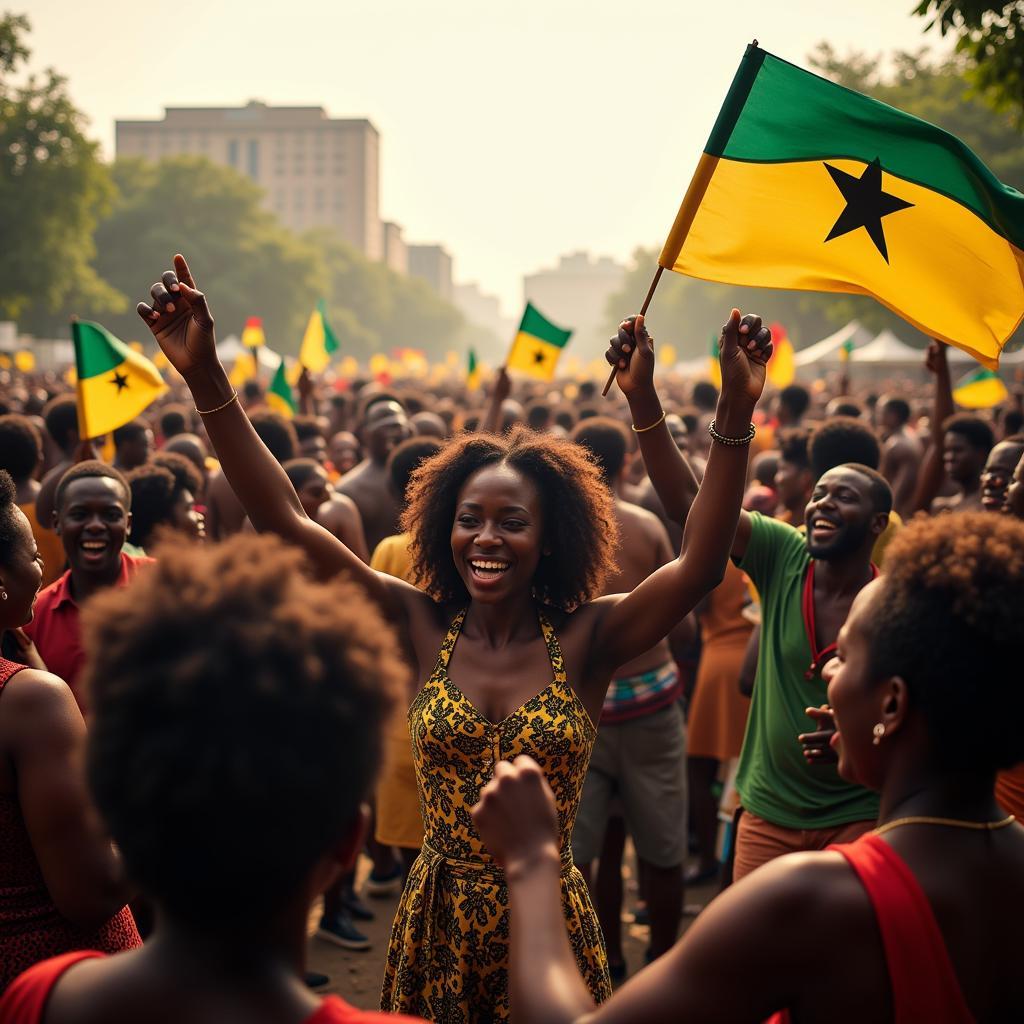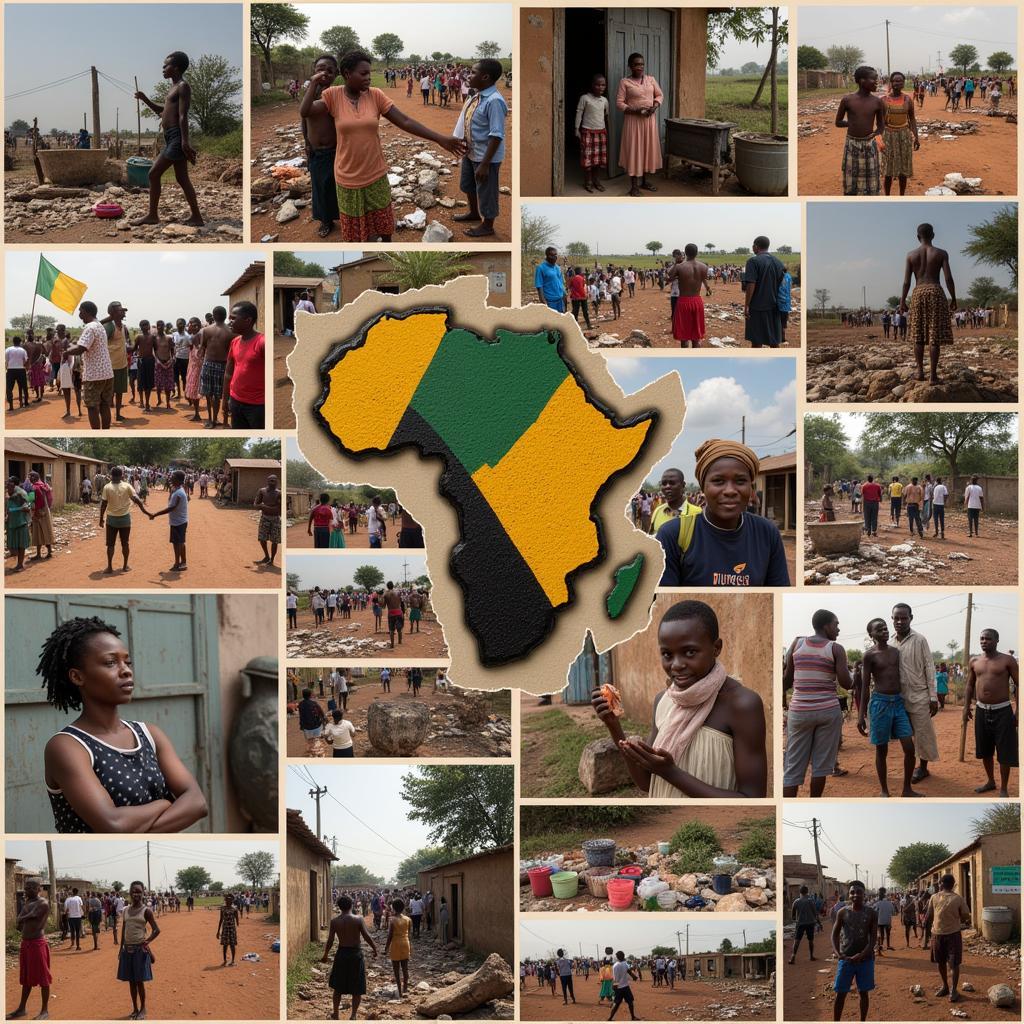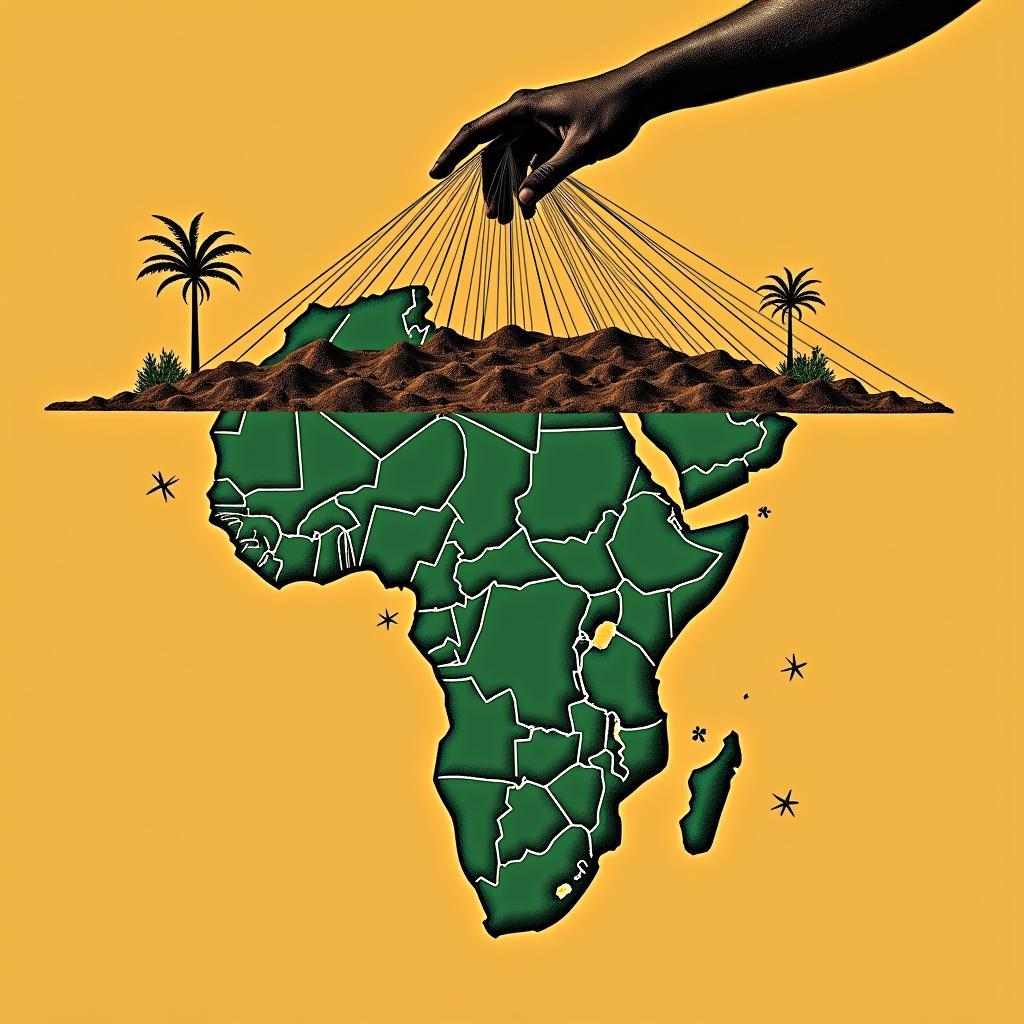African Independence from Britain: A Continent’s Journey to Freedom
The wave of African Independence From Britain dramatically reshaped the political landscape of the 20th century. From the mid-1950s to the early 1970s, numerous African nations threw off the shackles of colonial rule, forging their own paths towards self-determination and sovereignty. This period of transformation was marked by both peaceful transitions and violent struggles, reflecting the complex dynamics of decolonization.
The road to African independence from Britain wasn’t uniform. Some nations, like Ghana, achieved independence through relatively peaceful negotiations, while others, like Kenya, endured protracted and violent conflicts. This diverse experience reflects the varying levels of British control, the strength of nationalist movements, and the specific socio-political contexts of each colony. For instance, the presence of a significant white settler population in Kenya contributed to a more violent struggle for liberation. You might be interested in learning about the African colonies of Spain.
The Winds of Change: Factors Driving Independence
Several factors fueled the drive for African independence from Britain. The Second World War significantly weakened European powers, both economically and militarily, making it more difficult for them to maintain their vast empires. The rise of nationalist movements across Africa, inspired by pan-Africanism and the ideals of self-determination, also played a crucial role. These movements mobilized populations, demanding an end to colonial rule and the establishment of independent states.
The Role of Nationalist Leaders
Charismatic leaders like Kwame Nkrumah in Ghana and Jomo Kenyatta in Kenya emerged as powerful voices for independence. They articulated the aspirations of their people, organized resistance movements, and negotiated with British authorities, often under immense pressure. Their leadership was instrumental in galvanizing support for independence and shaping the post-colonial political landscape.
 Ghana Independence Celebration
Ghana Independence Celebration
Furthermore, the growing international pressure against colonialism, particularly from newly independent nations in Asia and the Americas, also contributed to the momentum for African liberation. The United Nations, through its various resolutions and declarations, provided a platform for African nations to voice their grievances and demand self-determination.
The Aftermath of Independence: Challenges and Opportunities
While independence brought about jubilation and hope, it also presented significant challenges. Many newly independent nations faced the daunting task of building new institutions, establishing stable governments, and fostering economic development. The legacy of colonialism, including economic exploitation, political disenfranchisement, and social inequalities, cast a long shadow over the continent. It’s also fascinating to delve into African literature and explore themes of independence and identity. Check out our curated list of 10 amazing African literature books.
Economic and Political Instability
Many African nations struggled with economic instability, exacerbated by dependence on former colonial powers for trade and aid. Political instability, including military coups and civil wars, also became a recurring theme in the post-independence era. The arbitrary borders drawn during the colonial period often grouped together diverse ethnic and linguistic groups, creating tensions and conflicts that continue to plague some regions. You can visualize the colonial divisions by exploring the African colonies 1930 map.
 Post-Independence Challenges in Africa
Post-Independence Challenges in Africa
“The struggle for independence was just the beginning,” observes Dr. Amina Omar, a prominent historian specializing in African decolonization. “The real challenge lay in building just and equitable societies after centuries of colonial rule.”
The Legacy of British Colonialism in Africa
The legacy of British colonialism in Africa is complex and multifaceted. While it left behind infrastructure and educational systems, it also resulted in economic exploitation, political marginalization, and the erosion of traditional African institutions. The impact of colonial rule continues to shape the political, economic, and social landscapes of many African nations today. Did you know about the role of African currency, specifically the shilling, and its ties to colonial history?
Neo-colonialism and its Impact
Even after independence, many African nations found themselves entangled in neo-colonial relationships with former colonial powers. These relationships, characterized by economic dependence and political interference, often hindered genuine development and perpetuated inequalities. Understanding this ongoing dynamic is crucial for comprehending the contemporary challenges facing the continent. For instance, during World War I, there were significant differences in the treatment and deployment of Indian vs African troops, highlighting the racial hierarchies within the British Empire.
 Neocolonialism in Africa
Neocolonialism in Africa
Professor Kofi Asante, a renowned economist, adds, “Neo-colonialism presents a subtle but powerful obstacle to African development. It perpetuates economic dependence and undermines genuine self-determination.”
Conclusion: A Continual Journey
African independence from Britain marked a pivotal moment in the continent’s history. While the journey towards true freedom and prosperity continues, the spirit of self-determination and the resilience of African people remain unwavering. The struggle for independence serves as a testament to the enduring human desire for liberty and equality. Understanding the complexities of this historical period is essential for navigating the challenges and opportunities facing Africa today.
FAQ
- When did most African countries gain independence from Britain? The majority gained independence between the mid-1950s and the early 1970s.
- Who were some key leaders in the African independence movements? Key leaders included Kwame Nkrumah, Jomo Kenyatta, and Julius Nyerere.
- What were some of the challenges faced by newly independent African nations? Challenges included economic instability, political instability, and the legacy of colonialism.
- What is neo-colonialism? Neo-colonialism refers to the continued economic and political influence of former colonial powers over newly independent nations.
- How did the Second World War contribute to African independence? The war weakened European powers, making it more difficult for them to maintain their empires.
- What role did nationalist movements play in African independence? Nationalist movements mobilized populations and demanded an end to colonial rule.
- What is the legacy of British colonialism in Africa? The legacy is complex, including both positive and negative aspects, and continues to shape the continent today.
More Questions and Related Articles
- What were the long-term effects of British rule in specific African countries?
- How did the Cold War influence the post-independence trajectory of African nations?
- What are some successful examples of post-colonial development in Africa?
If you need further assistance, please contact us:
Phone: +255768904061
Email: kaka.mag@gmail.com
Address: Mbarali DC Mawindi, Kangaga, Tanzania
We have a 24/7 customer support team.
